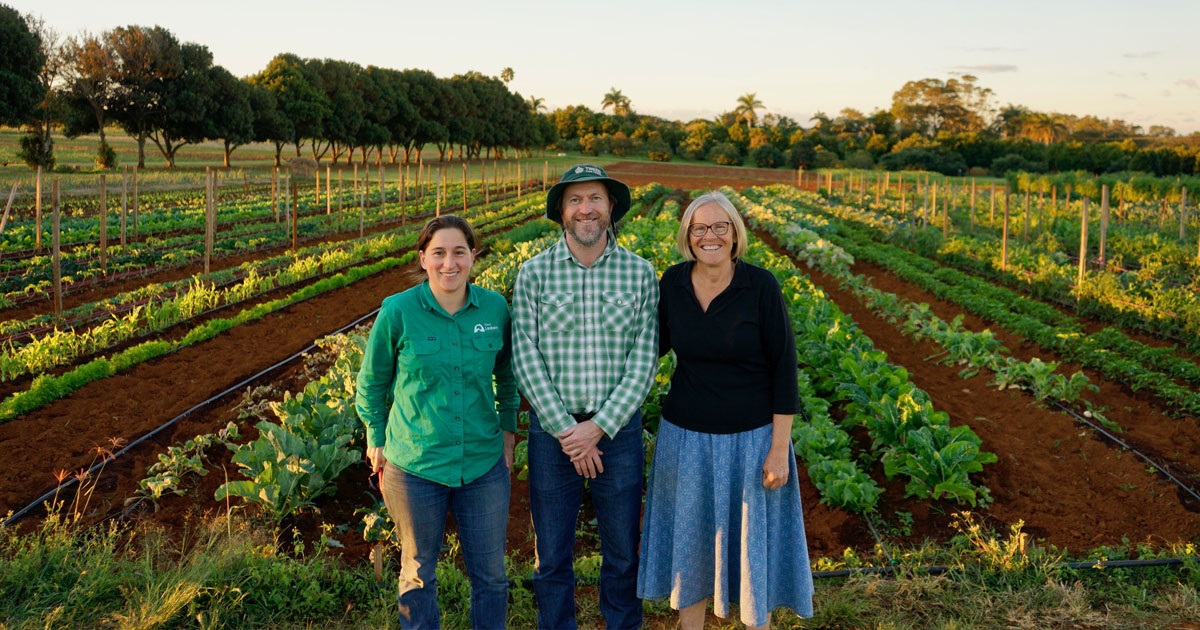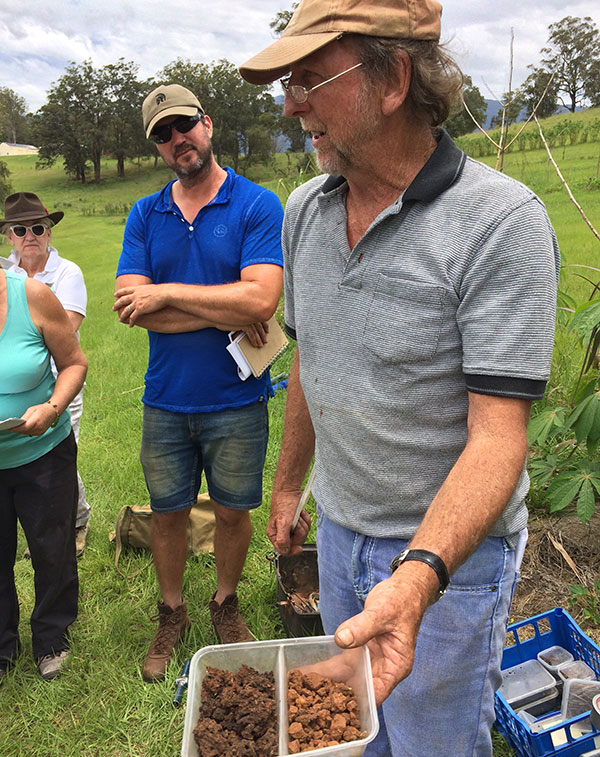Agriculture projects
Building drought resilient farms Small Farms Big Changes Growing sustainable farms Growing agriculture in the Tweed

Building drought resilient dairy and beef farms in the Tweed
Tweed Shire Council received a grant from the Australian Government’s Future Drought Fund to create more drought resilient farms. Beef and dairy graziers were aided via holistic planning, trialling biodiverse pastures, fencing for rotational grazing, introducing dung beetles and feeding biochar to cattle.
See our two short videos summarising the key learnings:
Watch recordings of talks from a workshop we hosted along with North Coast Regional Landcare on adapting agriculture for climate disruption.
Results of a multi-species pasture cropping trial(PDF, 2MB)
Small Farms Big Changes
Tweed Shire Council was awarded an Education Grant from the NSW Government’s Environmental Trust to conduct a series of farm field days and workshops between 2019-2022.
Topics for these workshops were determined through a survey of local farmers, who expressed their interest in learning subjects such as weed management, soil erosion reduction, water control and biological pest control.
The results and insights from these workshops were captured in a collection of short videos.
Small Farms Big Changes videos
Growing sustainable farms from the ground up
 Dave Forrest - Soil Improvement Plan
Dave Forrest - Soil Improvement PlanTo improve soil health on vegetable farms in Tweed Shire, Council was awarded a grant from the Australian Government’s National Landcare Program.
The grant provided growers access to local soils expert and vegetable grower David Forrest from Forrest Organics. Dave provided training and personalised extension advice and devised a soil improvement plan to help growers enhance soil quality and tackle particular soil health issues.
To learn more about the strategies implemented such as the use of cover crops, integrating compost, and applying biologically inoculated biochar see our short summary video below.
Growing agriculture in the Tweed
Farming Together, a farming advisory service associated with Southern Cross University, has undertaken a study to identify local agricultural industry growth opportunities in the Tweed Local Government Area. The findings of the work are available here including a guide to assist with implementation of new farming projects in the Tweed.